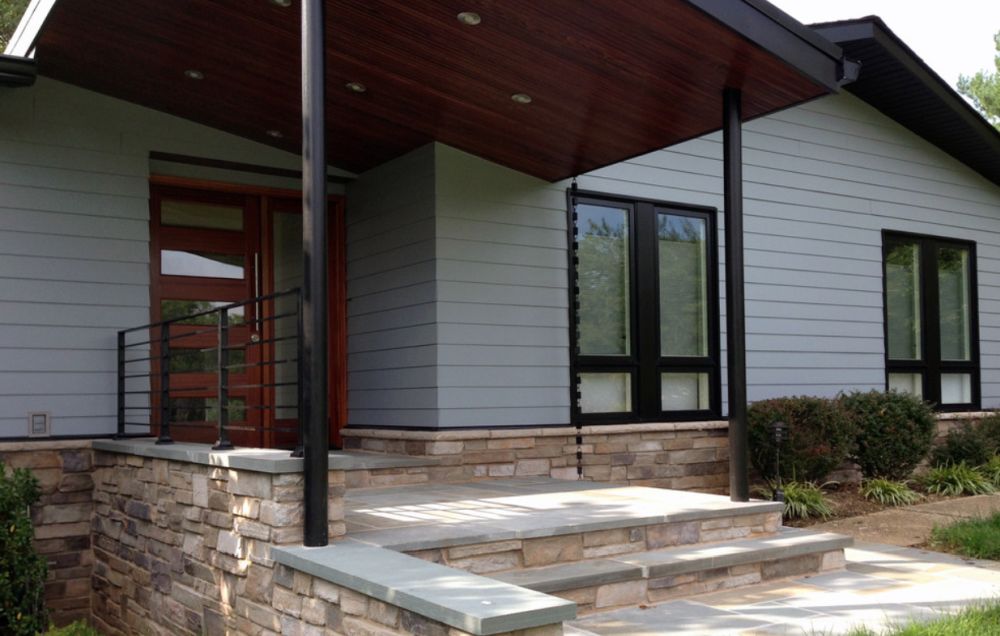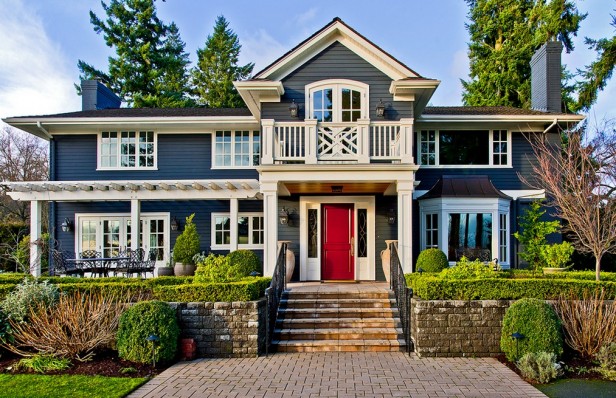
Painting exterior brick is a great way to update the appearance of your home. In many cases it can even increase the value of your property. It can also protect bricks from severe weather. Before you begin the process, here are some things to keep in mind.
First, you must ensure that your brick can be painted. Clean the surfaces well. For this purpose, you can use a combination soap and water. After you have scrubbed and filled in the cracks, you can then paint them. The bricks can then be painted with a brush or a sprayer. You can paint large sections easier with a paint sprayer.
Important is the use of high quality paint. Your brick will be protected for many years by a high-quality paint. A breathable paint will allow moisture to escape from your brick surface. This paint will help prevent paint from peeling. A professional painting contractor can help you decide the best products to use.

Next, choose the right brick color. You might choose a color to complement your home's other features. If you have a gray slate roof you could choose a crisp white brick to create a more grand appearance. For a more whimsical look, you could choose a darker brick colour. The wrong color could make your brick look less attractive. Therefore, it is important to research your options before starting any project.
Also, ensure you use the correct primer on your brick. Prior to painting, you must apply at least one coat. Allow the primer to dry for at minimum 24 hours before applying the final layer of paint.
During the painting process you will also need safety equipment. You will be able to avoid inhaling paint fumes and protect your eyes with the right gear. For this job, you will need several tools, including a sprayer, brush, drop cloths, and paint.
The size of your home will impact the cost of painting exterior brick. For a 2,500-square-foot home, you will need at least eight gallons of paint. You'll also need to buy a few paint rollers and brushes. You can also hire a professional painter if you need to paint large areas. This will save you time and prevent mess.

Your exterior paint may last as long as twenty years, depending on the type of paint. Consider the extreme weather and harsh conditions that exterior bricks are exposed to, so you want a paint that will resist fading and weather damage. It is recommended to use a latex-based and breathable paint. You will need to wait at least one year for new brick to fully acclimate before painting it.
FAQ
How do you renovate a house with no money?
The following steps should be taken when renovating a house without any money:
-
You should create a budget plan
-
Find out the materials you require
-
You must decide where to place them
-
Make a list.
-
Determine how much money you have
-
Plan your renovation project
-
Start working on your plan
-
Online research is a good idea.
-
Ask friends and family for help
-
Get creative!
Are permits required to renovate my home?
Yes. Permits will be required for any home-improvement project. In most cases you will need to have a building permit along with a plumber's permit. You may also need a zoning permit depending on the type of construction you are undertaking.
What time does it take to finish a home remodel?
It all depends upon the size of your project and how much time it takes. The average homeowner spends three to six hours each week working on the project.
Statistics
- According to the National Association of the Remodeling Industry's 2019 remodeling impact report , realtors estimate that homeowners can recover 59% of the cost of a complete kitchen renovation if they sell their home. (bhg.com)
- A final payment of, say, 5% to 10% will be due when the space is livable and usable (your contract probably will say "substantial completion"). (kiplinger.com)
- Most lenders will lend you up to 75% or 80% of the appraised value of your home, but some will go higher. (kiplinger.com)
- ‘The potential added value of a loft conversion, which could create an extra bedroom and ensuite, could be as much as 20 per cent and 15 per cent for a garage conversion.' (realhomes.com)
- It is advisable, however, to have a contingency of 10–20 per cent to allow for the unexpected expenses that can arise when renovating older homes. (realhomes.com)
External Links
How To
5 Things You MUST Know Before Starting Your Home Renovation
-
Do you really want this? If you are planning to do major home improvements like renovating your bathroom or building new houses, you will likely need help. If you aren't confident enough to take on such a daunting task, you may want to reconsider. This could cost you a lot of money and time, and you may not get any real benefit from it. Hire someone who knows the ropes to help you. They'll save you a lot of hassle and stress, and you'll still end up with a beautiful space to live in.
-
How much should I budget? - This one might seem obvious, but spending too much on a renovation project could actually make matters worse. The reason is because you'll probably find yourself having to pay back most of the costs at the end of the day. If you have a budget in place, stick with it. You could wind up spending a lot and not getting any return.
-
Do I prefer to hire professionals or DIY? - Although there's no right answer, we would recommend hiring professionals if you have the means. They can give you sound advice about how to proceed with your project. They will install the plumbing correctly, take care of safety, and offer a guarantee after they have finished their work. On the flip side, DIY projects usually involve lots of trial and error, which means you'll have to learn a lot of lessons the hard way. There will be many problems along the way.
-
Can I afford it - Don’t underestimate the cost associated with a home renovation. Even if your budget is tight, you may need to borrow money to cover costs. When you want to sell your existing property quickly after the renovations are complete, you will need to account for the price of selling it.
-
Where should I begin? There is no right or wrong place to begin when it comes to starting. But we suggest you choose something that you enjoy working on. That way, you'll be motivated to keep going, and you'll be less likely to procrastinate. Avoid areas that require constant maintenance. If your living area is constantly cluttered with dust and dirt, you should not attempt to redesign it.